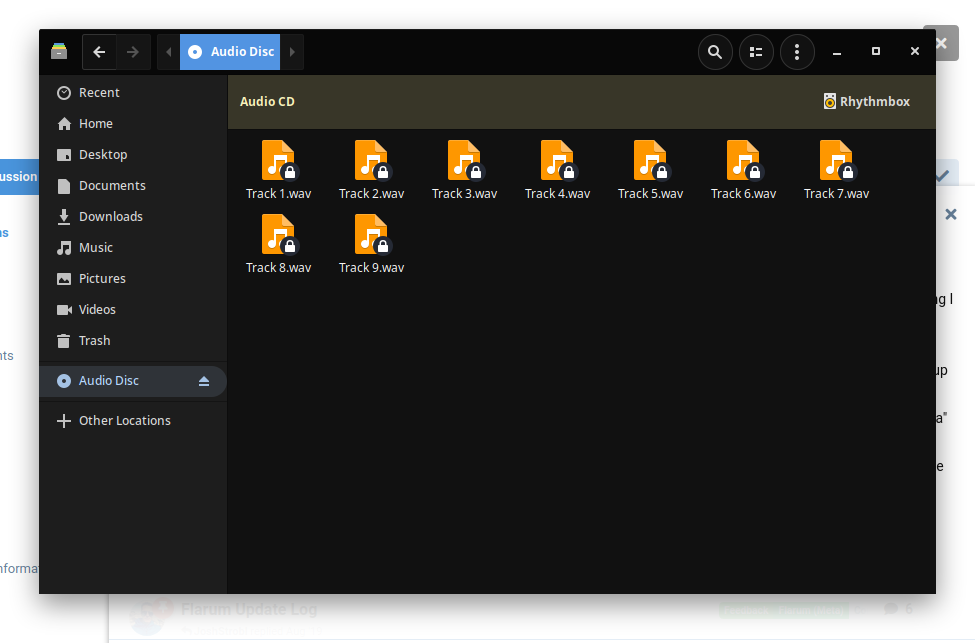Today I decided to learn about the built-in audio software on Solus Budgie - Rhythmbox! So, I'll first make note of an interesting quirk or bug with... what is most likely a GNOME issue, and then I'll move on to a question for anyone who cares to answer. Regardless, this is a really nice looking and handling piece of software, and I think it will do everything I need it to regarding my music collection. 😃
1. The Quirk / Bug: I like physical media, and so a lot of my music gets to me first by way of CD, which then ends up on the computer. Rhythmbox did not initially see a CD when it was entered into the drive. Solus, however, sees my optical drive just fine, so there was a software bridge that just wasn't up yet. I needed to go into the "Removable Media" entry of the Settings Application and set CD Audio to open with Rhythmbox. After this setting change was made, Rhythmbox still didn't see the disk (or drive) in the side pane menu. Instead, I needed to open Rhythmbox directly from the optical drive tab in the file manager (via the application button on the Audio CD banner):

Doing this finally allowed me access the CD from the player, and it also has caused the player to recognize the CD drive ever since! Goofy routine, but hopefully it will help someone out if they're not able to load their CDs straight into Rhythmbox. And, if someone is able to find the source of this inconvenience, perhaps future users won't have to deal with it at all?
2. The Question: If you are a Rhythmbox user, what is your preferred audio import setting? I am a former iTunes user, so import settings were fairly basic. They were also predictable and easy to understand. Rhythmbox has considerably more options. These options are not that complicated, but the built-in details about them are rather sparse. For instance, I was well aware of what FLAC was, but Rhythmbox will also bring things in like ALAC (which I've never used). The application doesn't give any details as to why you'd choose one lossless format over the other (does ALAC allow more metadata, etc?). Likewise, MPEG 4 (.m4a), which is stored with the same extension as ALAC, is a lossy format, but the precise import details of it are not apparent to the user (without experimentation). The MP3 and OGG formats are a little easier to interpret, but I find it strange how MP3 will report a fixed bitrate in terms of kbps, while OGG only reports in bps. Strange...
...So, none of the above is too tricky to figure out. But, I'm wondering if there's some additional input available to help reduce the amount of experimentation required to come to a conclusion. Again, this looks like a great little program that has been incorporated into a great Linux OS - thank you, Solus team!